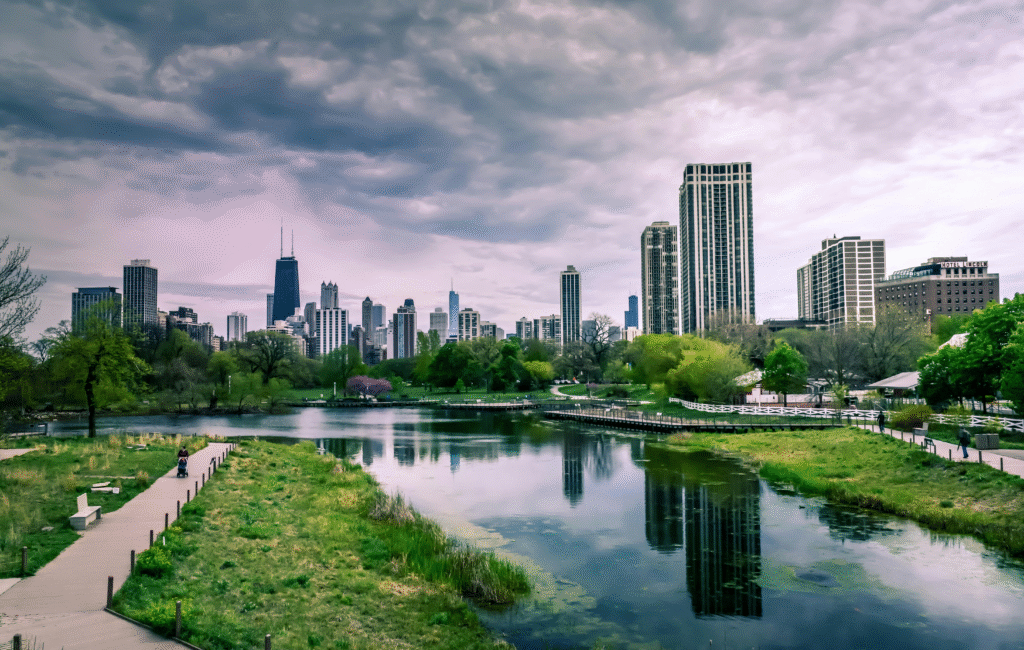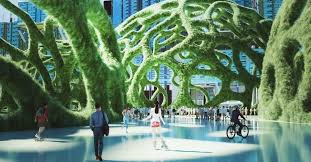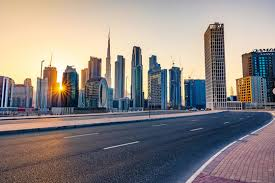
Dubai, known for its towering skyscrapers and luxury lifestyle, is now becoming famous for something new: its bold vision for a sustainable future. As one of the world’s fastest-growing cities, Dubai is taking serious steps to protect the environment and lead the way in green living and clean energy.

Dubai is part of the United Arab Emirates (UAE), a country that has grown rapidly over the past few decades. While oil once drove the country’s economy, today the focus is shifting. Leaders in Dubai are now investing heavily in clean energy, smart buildings, green transport, and sustainable tourism.
The government has set clear goals through several long-term strategies aimed at making Dubai one of the world’s most eco-friendly cities by 2050.

At the heart of Dubai’s green goals is the Dubai Clean Energy Strategy 2050. Launched by the Dubai Electricity and Water Authority (DEWA), this plan aims to provide 100% of Dubai’s energy from clean sources by 2050. The strategy is based on a mix of solar, nuclear, and wind power, along with other renewable sources.
A major project in this plan is the Mohammed bin Rashid Al Maktoum Solar Park—one of the largest solar parks in the world. By 2030, it’s expected to generate over 5,000 megawatts of clean energy, enough to power hundreds of thousands of homes.
Dubai’s urban planning is also going green. The Dubai 2040 Urban Master Plan focuses on sustainable growth by increasing green areas, protecting natural reserves, and promoting eco-friendly transportation. The goal is to build a “15-minute city” where people can reach workplaces, schools, and parks within 15 minutes by walking or cycling.
The plan will also limit urban sprawl, reduce air pollution, and protect heritage and wildlife zones.
To cut carbon emissions, Dubai is expanding its public transport network and promoting electric vehicles (EVs). The Roads and Transport Authority (RTA) plans to make 90% of all public transport emissions-free by 2050.
Dubai already has electric buses, a growing metro system, and EV charging stations across the city. The RTA is also testing autonomous electric taxis, which could hit the roads in the near future.
Dubai is encouraging the construction of green buildings that use less water and energy. The Green Building Regulations and Specifications are now mandatory for all new buildings in Dubai. These buildings include features like solar panels, smart lighting, and efficient cooling systems.
Some real estate developers are going further. Communities like The Sustainable City use 100% solar energy, recycle waste, and grow food locally.
Dubai is also tackling water waste and plastic pollution. As a desert city, water conservation is a top priority. The government is investing in advanced desalination plants powered by solar energy and promoting the use of treated wastewater for irrigation.
The city is also moving toward zero waste to landfill by 2030. New recycling programs, waste-to-energy plants, and plastic bans are helping to reduce the city’s environmental impact.
Dubai is reinventing tourism with a green touch. Many hotels now follow sustainability standards, using eco-friendly materials, recycling systems, and offering guests a chance to support local conservation efforts.
Eco-tourism spots like the Dubai Desert Conservation Reserve, Hatta Mountains, and Al Marmoom Desert Conservation Reserve offer unique experiences while protecting the environment.
The city also hosts the annual World Green Economy Summit (WGES), which brings global leaders together to share ideas on fighting climate change.

While Dubai has made great progress, challenges remain. The hot climate, rapid urbanization, and high energy demand make it hard to reach sustainability goals. However, with strong leadership and public support, Dubai is on the right path.
Educating residents, supporting green startups, and enforcing environmental laws will play a key role in achieving success. Dubai is also working closely with international organizations like the United Nations to align with global climate goals, such as the Paris Agreement.
Dubai’s journey is more than just a local effort. As a global hub for business and tourism, the city’s success in sustainability can inspire other fast-growing cities to follow a similar path. With billions of people expected to live in cities by 2050, urban sustainability is no longer a choice—it’s a must.
Dubai is showing the world that luxury and sustainability can go hand in hand.
Read More:- Shobha Realty Launches Its Most Luxurious Project Yet—Full Details Inside 2025
